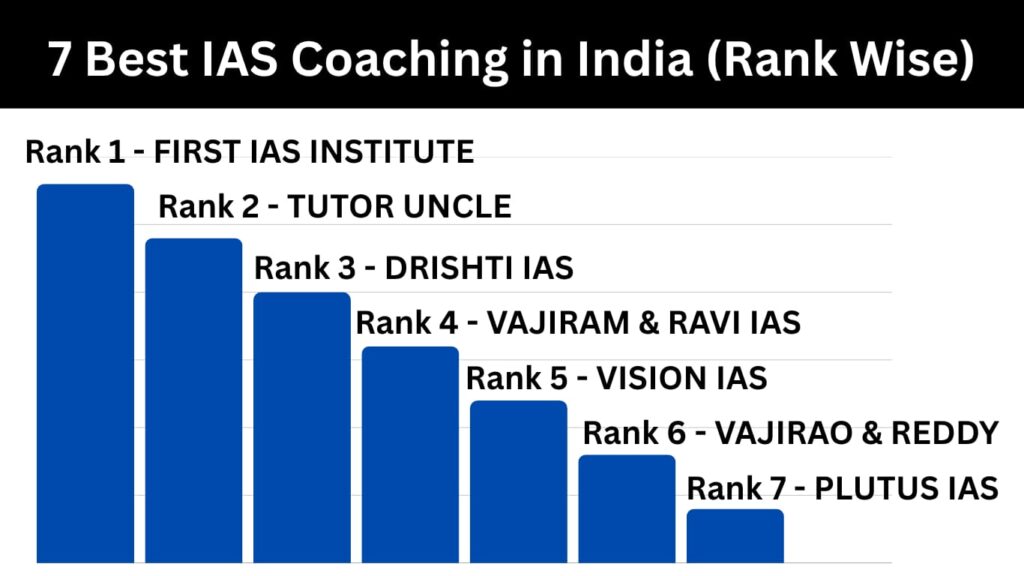The UPSC Civil Services Examination (CSE) demands mastery over a vast syllabus, but not all subjects carry the same weight. Some topics are consistently more important due to their higher frequency in question papers and their overlapping relevance across Prelims, Mains, and even the Interview stage.
In this blog, we’ll identify the most important subjects for UPSC CSE and give you a strategic approach to study them effectively.
Read More : 7 Best IAS Coaching in India for Hindi Medium
1. Indian Polity and Governance
Why it’s important:
- Polity is a scoring subject in Prelims because questions are factual yet conceptual.
- In Mains, it overlaps with Governance, Constitution, and current affairs.
- Questions are predictable if you study standard sources.
Key topics:
- Constitution: Preamble, Fundamental Rights, Fundamental Duties, Directive Principles of State Policy.
- Parliament & State Legislatures.
- President, Prime Minister, Council of Ministers, Governor, CM.
- Judiciary & Separation of Powers.
- Amendments & Constitutional Bodies (ECI, CAG, UPSC).
- Local Governance (Panchayati Raj, Municipalities).

Sources:
- Indian Polity by M. Laxmikanth.
- DD Basu (for deeper conceptual clarity).
- PIB & PRS updates on governance.
2. Modern Indian History
Why it’s important:
- Covers significant events leading to India’s independence, a UPSC favorite.
- Overlaps with culture and post-independence topics.
Key topics:
- Revolt of 1857.
- Socio-Religious Reform Movements.
- Formation of INC & Moderate–Extremist phase.
- Gandhi Era Movements (Non-Cooperation, Civil Disobedience, Quit India).
- Role of Subhash Chandra Bose & INA.
- Partition and Integration of Princely States.
Sources:
- Spectrum’s Modern India by Rajiv Ahir.
- India’s Struggle for Independence by Bipan Chandra.
3. Geography (Indian & World)
Why it’s important:
- Frequently asked in both Prelims and Mains GS Paper I.
- Understanding maps, locations, and climate patterns also helps in Environment topics.
Key topics:
- Physical Geography: Mountains, Rivers, Climate, Soil types.
- Indian Geography: Agriculture, Mineral resources, Industrial regions.
- World Geography: Important climatic zones, Trade winds, Ocean currents.
Sources:
- NCERTs (Class VI–XII).
- Certificate Physical and Human Geography by G.C. Leong.
- Atlas (Oxford or Orient BlackSwan).
4. Economy
Why it’s important:
- Covers dynamic and static parts of the syllabus.
- Links directly with current affairs (Budget, Economic Survey).
Key topics:
- GDP, Inflation, Fiscal Policy, Monetary Policy.
- Banking & Financial Institutions (RBI, NABARD, SEBI).
- External Sector (Balance of Payments, FDI, WTO).
- Poverty, Unemployment, and Government Schemes.
Sources:
- Indian Economy by Ramesh Singh.
- Economic Survey & Union Budget highlights.
- RBI & Ministry of Finance websites.
5. Environment & Ecology
Why it’s important:
- Highly relevant for Prelims (especially after UPSC’s increased focus post-2013).
- Linked to current affairs like climate change summits, biodiversity issues.
Key topics:
- Climate change, Biodiversity hotspots.
- Environmental Acts & Protocols.
- National Parks & Wildlife Sanctuaries.
- Renewable energy and sustainable development.

Sources:
- NCERT Biology (Class XII chapters on Ecology).
- Shankar IAS Environment Book.
- MoEFCC reports.
6. Science & Technology
Why it’s important:
- UPSC focuses on application-based questions rather than pure theory.
- Mains covers emerging technologies with governance and ethics angles.
Key topics:
- Space Technology (ISRO missions).
- Biotechnology (GM crops, DNA technology).
- IT & AI developments.
- Health-related technologies (Vaccines, Medical devices).
Sources:
- NCERT Science basics.
- Press Information Bureau releases.
- Science Reporter magazine.
7. Current Affairs
Why it’s important:
- Backbone of all three stages of the exam.
- Integrates with every subject—Polity, Economy, Environment, etc.
Key topics:
- Government Schemes & Policies.
- International Relations (India’s bilateral & multilateral engagements).
- Social issues (gender, poverty, education).
Sources:
- The Hindu or The Indian Express.
- Yojana & Kurukshetra magazines.
- Rajya Sabha TV debates (for analytical depth).
Read More : 10 Best IAS Coaching in India
8. Ethics, Integrity & Aptitude (GS Paper IV)
Why it’s important:
- High-scoring potential in Mains if answered with clarity and real-life examples.
Key topics:
- Ethical theories and thinkers.
- Attitude, Emotional Intelligence, Moral Values.
- Case studies involving governance dilemmas.
Sources:
- Lexicon for Ethics.
- ARC Reports (2nd ARC).
- Real-life examples from newspapers.

How to Prioritize These Subjects
- High Return on Investment (ROI): Start with Polity, Modern History, Economy, and Environment—these give maximum marks for minimal overlap.
- Simultaneous Preparation: Keep Current Affairs integrated with daily study.
- Linking Static and Dynamic: For example, while studying Polity, link it with recent constitutional amendments in the news.
- Revision Cycles: Weekly short revisions + monthly deep revisions.
Final Words
While UPSC covers every subject under the sun, focusing more on high-weightage and interlinked subjects ensures better performance. Smart prioritization combined with consistent revision will make preparation more efficient and less overwhelming.
Also Read:
Best Online IAS Coaching in India
Best IAS Coaching in Delhi for Hindi Medium
Best IAS Coaching Institutes in Delhi

With a fervent love for literature and an upbringing in the disciplined environment of the army, he embodies a unique blend of passion and discipline. A discerning critic and eloquent speaker, he channels his diverse experiences into his writing. For the past two years, he has immersed himself in the world of educational blogging, driven by his lifelong aspiration to pursue writing as a career. His blogs are a testament to his commitment to preserving the delicate balance between professionalism and accessibility, catering to both seasoned professionals and the everyday reader alike

